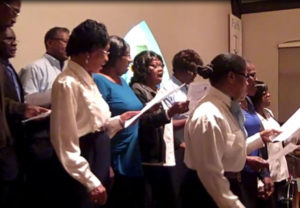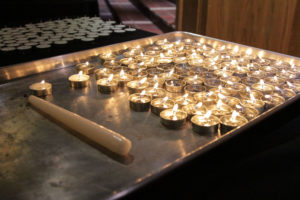November 3, 2010; Source: USA Today | If you were on the lam, would you rather turn yourself in at City Hall, the police headquarters, a civic center, or a local church?
The “Fugitive Safe Surrender” program of the U.S. Marshals Service encourages people with outstanding warrants for nonviolent offenses to turn themselves in at designated churches on special “safe surrender” days. By participating in the program, fugitives don’t get off the hook , but they are viewed a bit more kindly by the courts for turning themselves in, sometimes getting probation or reduced fine and sometimes getting referrals for job training or substance abuse counseling.
Sign up for our free newsletters
Subscribe to NPQ's newsletters to have our top stories delivered directly to your inbox.
By signing up, you agree to our privacy policy and terms of use, and to receive messages from NPQ and our partners.
Fugitives turn themselves in at participating churches and are processed through makeshift courts at the churches or close by. Although it sounds like a great thing for churches to do – using their spaces as a kind of sanctuary for people on the run—some people are concerned that using churches for government court or law enforcement activities violates the separation of church and state. New Jersey officials think that using churches is a lot better than having fugitives surrender at the civic center or some other public building, because even though “bad guys” may not be much as regular church-goers, their relatives might be and they might tell their scofflaw offspring to turn themselves over through the good offices of the church rather than an officious government setting. In New Jersey, while the fugitives surrender in churches, the cases then get dealt with in a separate, secular building nearby, such as a school, in order to avoid the church/state issue. One example from New Jersey is telling. A 41-year-old woman with 13 outstanding warrants turned herself in at a church in Camden. Homeless, on drugs, and supporting herself through prostitution, she hadn’t been in a church in 28 years. She said she would never have turned herself in anywhere but at a church.
The Safe Surrender program helped her consolidate her warrants, get counseling and drug treatment, and begin the process of clearing her record. Now, she is a grant writer for a nonprofit based in Wilmington, Delaware. So long as the state does its case processing in a building other than the church, using the church to get fugitives to turn themselves in and begin to straighten out their lives seems like a socially productive use of a church’s tax exempt status.—Rick Cohen













